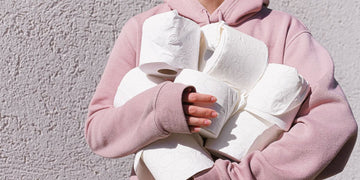Does pineapple change the taste of your vagina? Actually?

Have you ever eaten beets then noticed that your pee looks pink? Or maybe you caught a strange whiff and realized your pee smells after eating asparagus? The food we eat affects our bodies in ways we’re not always aware of, from the color of our pee to the way our vaginas smell.
But what about taste? Does pineapple actually change the taste of your vagina? Are vaginal taste and diet actually related? Keep reading to find out.
So, where did this rumor come from?
A few years back, social media mogul Kim Kardashian posted an Instagram of herself holding a can of pineapple juice with the caption “Google the benefits of pineapple juice.” She was alluding to a surprising, yet common, belief that drinking pineapple juice can make your vagina taste sweeter.
REF:QUIZ
Recommended for you!
What’s the verdict? Does pineapple affect your vaginal taste?
Does pineapple make your vagina taste sweeter? Like most urban myths, the truth behind this one is entirely based on anecdotal evidence rather than any concrete scientific studies. Mainly on Reddit, there are some pretty thorough forums documenting the taste of bodily excretions based on diet with the conclusion that fruit, in particular, can make them sweeter. According to Redditors, a fruit-heavy diet can go a long way and they claim that vaginas not only taste sweeter but semen too.
Alyssa Dweck, MS, MD, FACOG, a New York-based OBGYN and co-author of The Complete A to Z for Your V, told Health that her patients have anecdotally reported a positive change in vagina taste after eating pineapple and that she continues to hear more about this phenomenon even though it hasn't been scientifically proven.
The bottom line is that there is no solid scientific evidence to prove that pineapple and vaginal taste are correlated. If that's the only reason you're drinking it, you can take the pineapple juice off of your grocery list. And pineapple aside, check out our favorite foods for a healthy vagina here.
Do pineapples have health benefits?
There is no denying that pineapple and pineapple juice have plenty of health benefits. Pineapple is an excellent source of vitamin C, which can be beneficial to your immune system.
It's also a great source of vitamin A and several other vitamins including beta-carotene, which can help to promote healthy vision.
Pineapples contain bromelain. Bromelain is important enzyme that helps fight swelling in the body. Not only is bromelain thought to help with inflammation, but it also can reduce congestion caused by excess mucus. Many nutrients in pineapple can be beneficial for your heart, allergy/cold symptoms, and digestion.
If you’re questioning adding pineapple or pineapple juice to your diet, get in touch with your health care provider to ensure it’s safe for you and your body. While it has many benefits, it can also exacerbate heartburn, worsen existing kidney disease (from potassium), and have negative effects on your teeth (as all sugars do).
How do vaginas taste? How do vaginas smell?
With so much stigma around “dirty vaginas” and expectations for a woman to appear “clean,” it’s no wonder that the pineapple myth has stuck around. The truth is, each vagina has its own unique smell and taste with natural fluctuations throughout your menstrual and ovulation cycles. Your vagina is not supposed to smell or taste like a fruit!
Vaginas aren’t supposed to smell or taste like air fresheners and rainbows, they’re supposed to smell and taste like a vagina. This is contrary to what douching products and scented vaginal washes might try to tell you. Douching treatments and other variables, like antibiotics, can alter the level of healthy bacteria that live in your vagina, which can lead to yeast infections or bacterial vaginosis. If you’re already dealing with an infection, douching can even push that infection further into the uterus, causing even more serious health problems.
If you notice your vagina producing any strong odor, try Winx Health (formerly known as Stix) Vaginal pH Tests to see if you have a yeast infection or other vaginal infection like bacterial vaginosis. We recommend contacting your primary care provider for a follow-up for any treatment you may need.
Keep Reading

Could an everyday product be causing your vaginal infections?
Sep 11

Why are Black women in the US more likely to die during pregnancy?
Feb 29

Everything you should know before you let him come inside you
5/22/2023 • 3 minutes









